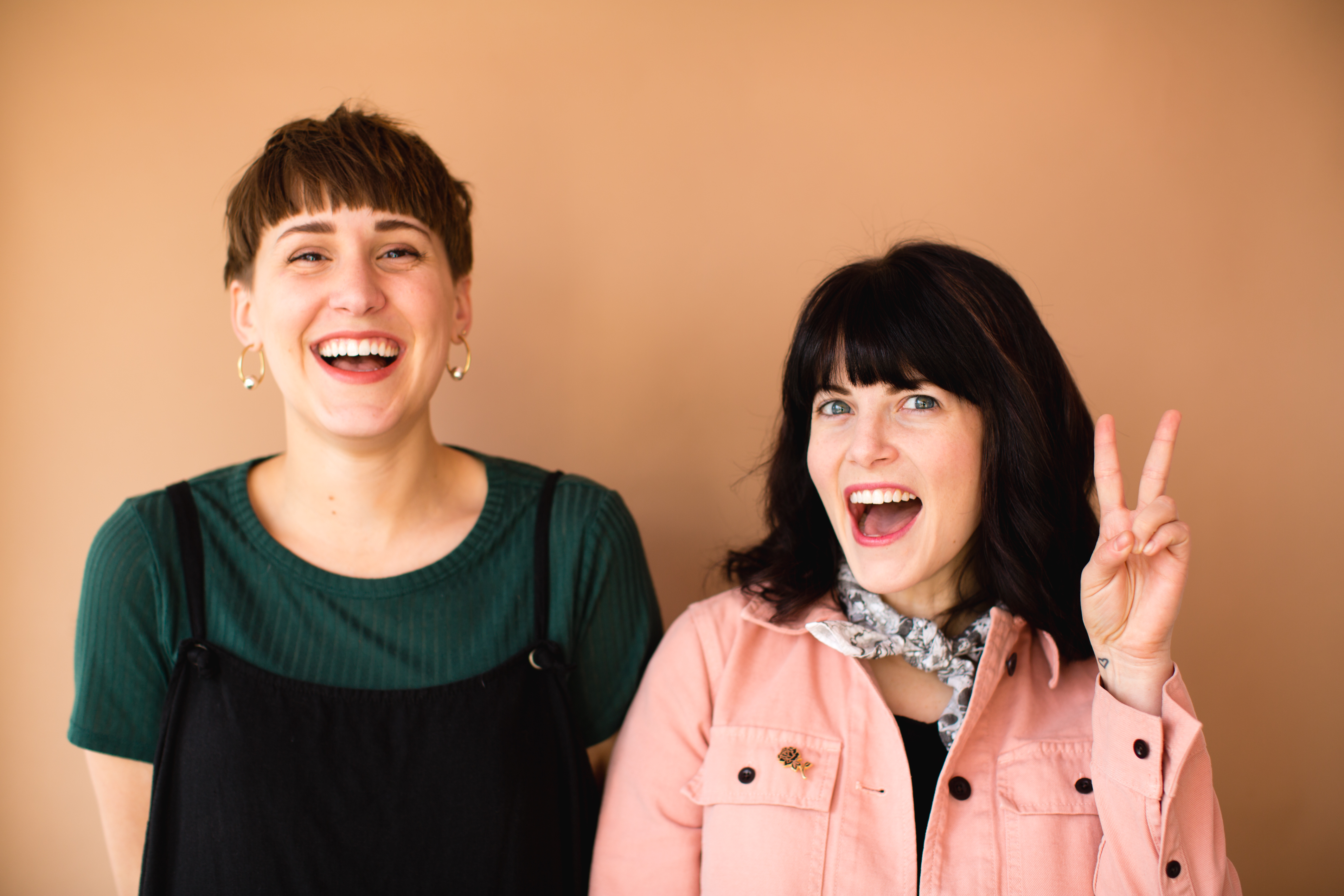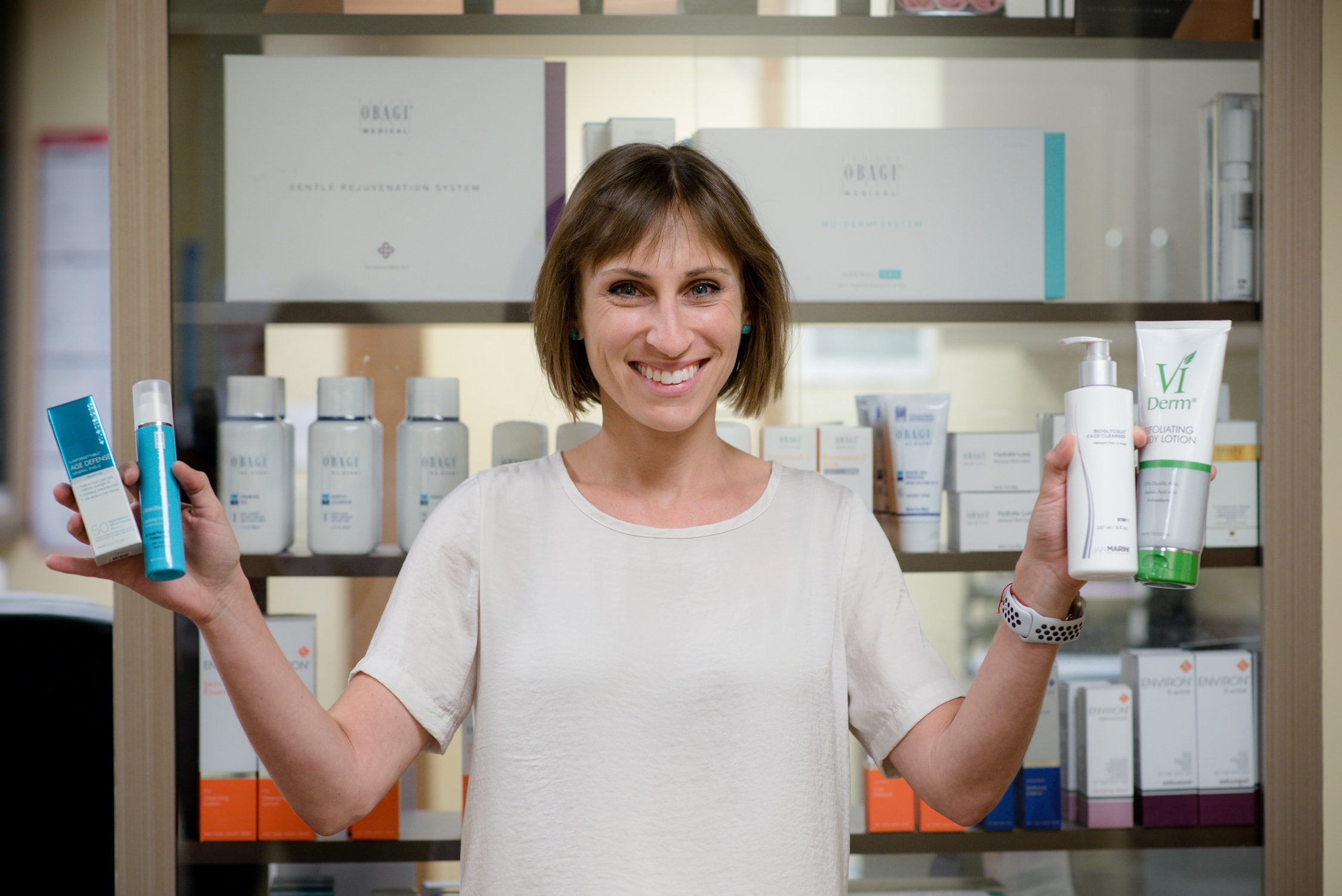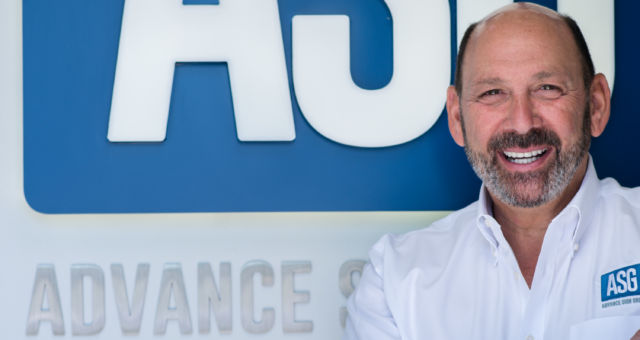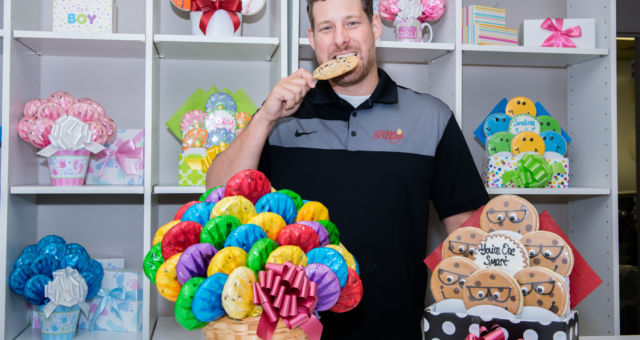Since 2016, Nathan Leber has been honing his niche as a small design and print shop owner, focusing on building lasting relationships and crafting the highest quality products for his customers. Instead of emphasizing profit and growth, Nathan’s found success through community, employee achievement, and creating products that speak for themselves.
In this social media age, Leber Design & Print depends on word-of-mouth to draw in new customers, along with supporting local community and eco-friendly modes of production.
With a strong belief in education as investment, Nathan shares resources that have been vital to his entrepreneurial process!
Give us a summary of your business in 200 words or less.
Leber Print & Design is a retail quality apparel design, screen printing, and embroidery shop. We are focused on businesses and brands that want to elevate their apparel line and build long-lasting relationships to help improve their company, industry, and community.
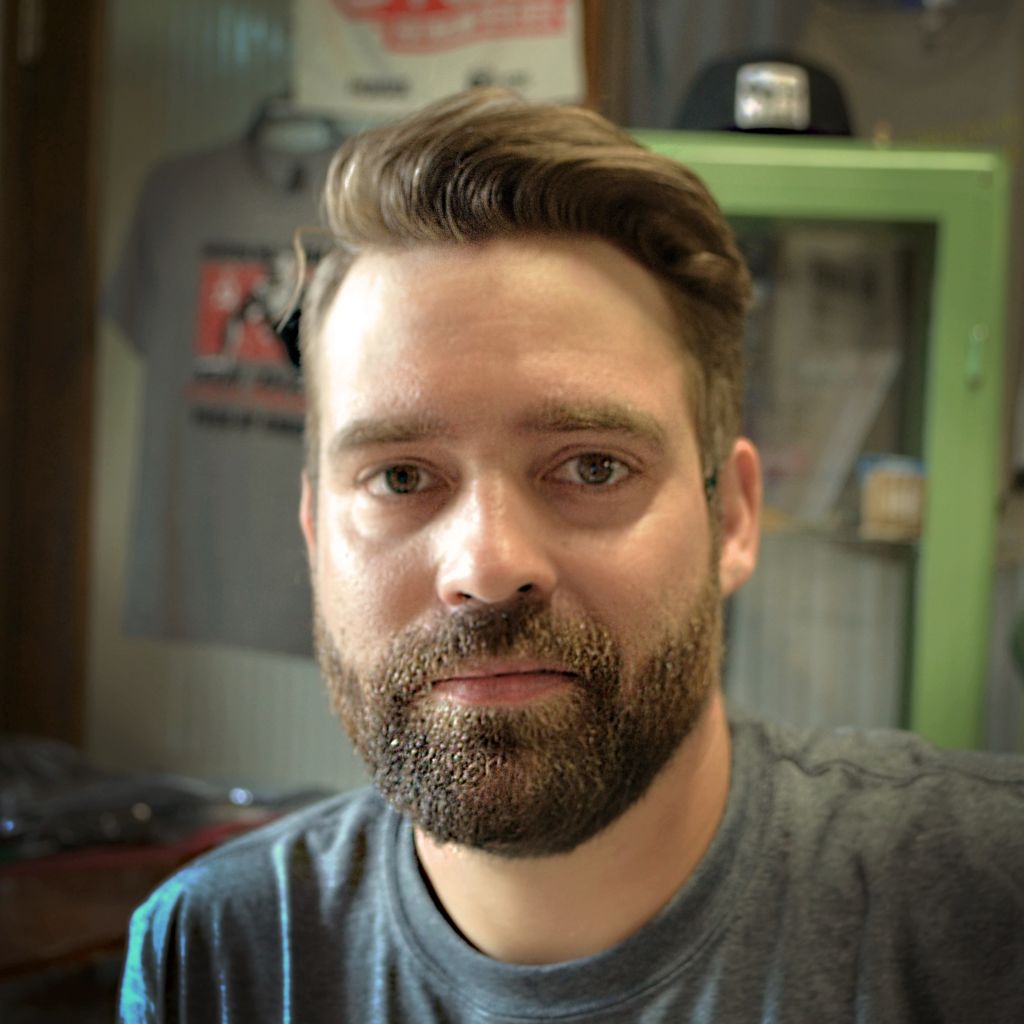
How did the idea for your business come about?
I managed a company that printed for large national fashion retail brands and thought it would be amazing if this level of quality, experience, and creativity could be brought to smaller brands and organizations.
What was the turning point for your business? Was there a moment you knew you had something special?
I knew we were onto something almost immediately. Orders just came in, we even didn’t have to try to go out and get them. Once I was working every evening and weekend just trying to keep up, I knew this was for real.
What does it mean to you to be an entrepreneur and business owner?
It means unlimited creativity. If you have the desire and knowledge, you can attain anything you’d like. It also comes with an incredible amount of responsibility.
As entrepreneurs, we are responsible for providing our community with a good business that is eco-friendly and gives back. A responsibility to our employees to provide them with good jobs that offer them a strong work-life balance and fair pay. A responsibility to our customers to ensure that we are representing their brand to the highest level and treating it as if it were our own.
Doing things the right way on all levels is tough, but it’s worth it.
How do you balance making a profit with “doing things the right way”?
The completely honest answer is, we always do things the right way to the best of our ability. Of course, we want it to always be profitable, and we believe that by having accurate cost-based pricing combined with customers who value high-quality products, we can accomplish both.
As we build history with a client, we may find that they don’t value the same things as us, and so we will part ways. We don’t sacrifice doing things the right way no matter what, so if that’s not something a prospective client values, they probably are not a good fit for us.
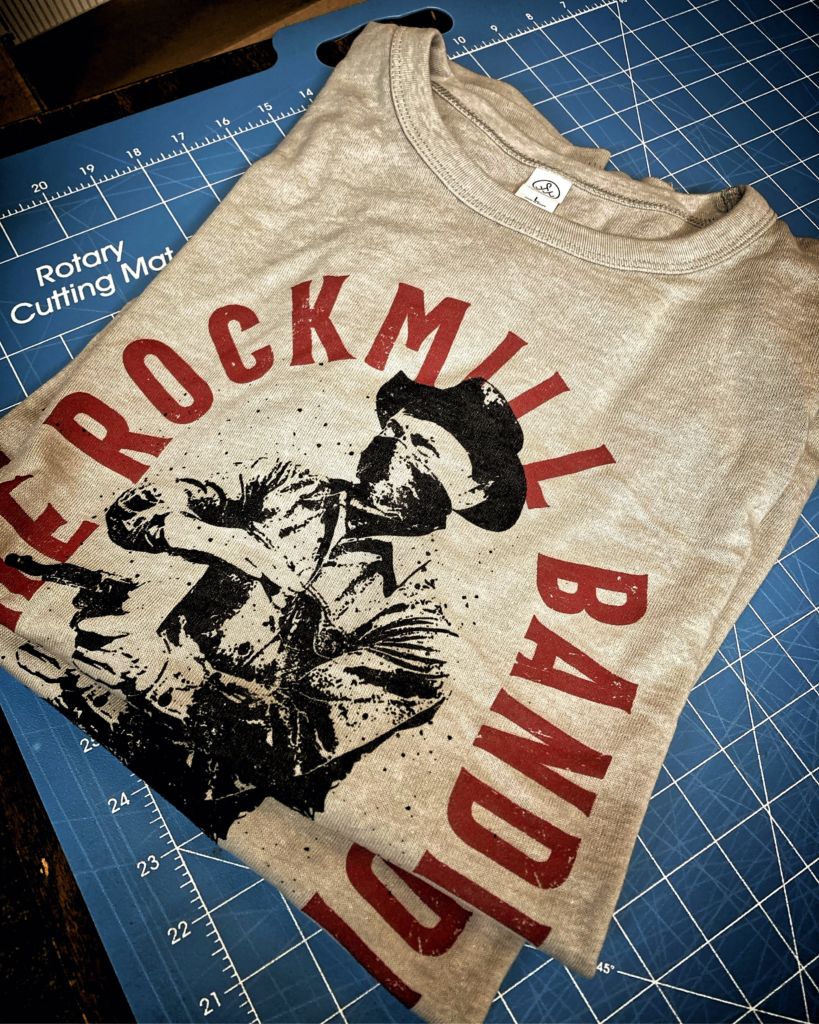
What does the city of Columbus mean to your business?
Columbus means everything to our business. It’s such a rich and diverse city that the possibilities are almost endless, and there is hardly anything that you can’t find here. Economically it’s an amazing city to be a part of, and it is exciting to see the new growth and opportunities at an almost daily rate.
I often tell people outside of Columbus that it is the best city no one has ever heard of. Being that Columbus has only recently become a “big” city, it is still being defined, and it’s exciting to be a part of that and help shape what it will become.
Are you from Columbus? If not, please explain what brought you here and ultimately what made you stay.
I grew up north of Columbus in Huron County. At the time I was getting out of school there wasn’t a lot to do other than work in agriculture or in a factory. While I have great respect for those industries, I knew that wasn’t ultimately for me. I wanted to try to have a greater influence and be able to utilize my creative skills.
I always felt slightly out of place within the community I grew up in, and Columbus was such a growing, thriving place in the early 2000’s that it naturally attracted me, and I ended up staying. The people and mindset I was craving were here; I have been able to meet and rub shoulders with those that as a child I could barely dream of.
What’s the number one piece of advice you’d give to anyone wanting to start a business?
Make sure that you not only know the skill/art of whatever you are doing, but also know and understand business. Basic understanding of tax, types of corporations, marketing, employee compensation, and laws, are all part of it that many ignore until they encounter it because it’s not as fun for them.
Many entrepreneurs “wing it” and only look into these things as they occur. If you can study and understand ahead of time, you will save yourself a lot of frustration and stress. If you just love the task of whatever it is you are doing it’s probably best for you to work for someone else and be an all-star for them, without having to dive into all the “other stuff.”
What do you wish you knew about entrepreneurship before starting your business?
To have a small defined niche. Don’t be too broad. Be elite and be focused. Being spread too thin means you end up doing a lot but not being elite at anything.
How did you hone in on your niche?
We took the skills we were already good at and simply asked ourselves, “Who would we like to work with?”
We’ve adjusted this as time has gone on and as we’ve found certain areas that weren’t what we thought they were going to be or by coincidence discovered another area that is a whole lot of fun.
What are signs you’re being spread too thin?
Anytime something is not being done at the absolute best that we can deliver on. When this happens, it’s time to re-evaluate and focus on fewer things that we can be the best at.
Trying to be a business that’s a one-stop-shop or everything-to-everyone mentality is a fatal flaw within our industry.
What’s the most challenging part of your business?
I can’t think of any particular thing, it fluctuates based on the needs of the company and time of year. Making sure I’m always doing what is best/most important for the company and team, and not just working.
How do you check in with yourself to ensure you’re not on autopilot?
The easiest way for me to stay engaged is to make sure I’m always excited. If I’m passionate and driven with the product we are producing and the customers we are producing for, it is easy to not mentally check out.
Having the discipline to always have a plan going into each and every day with a checklist of tasks that will be accomplished helps keep me on track and ensures that I don’t lose focus and have a guide to keep me on task even if my mind wanders. It seems simple and it is, but it takes discipline to actually do this every day and follow through with it.
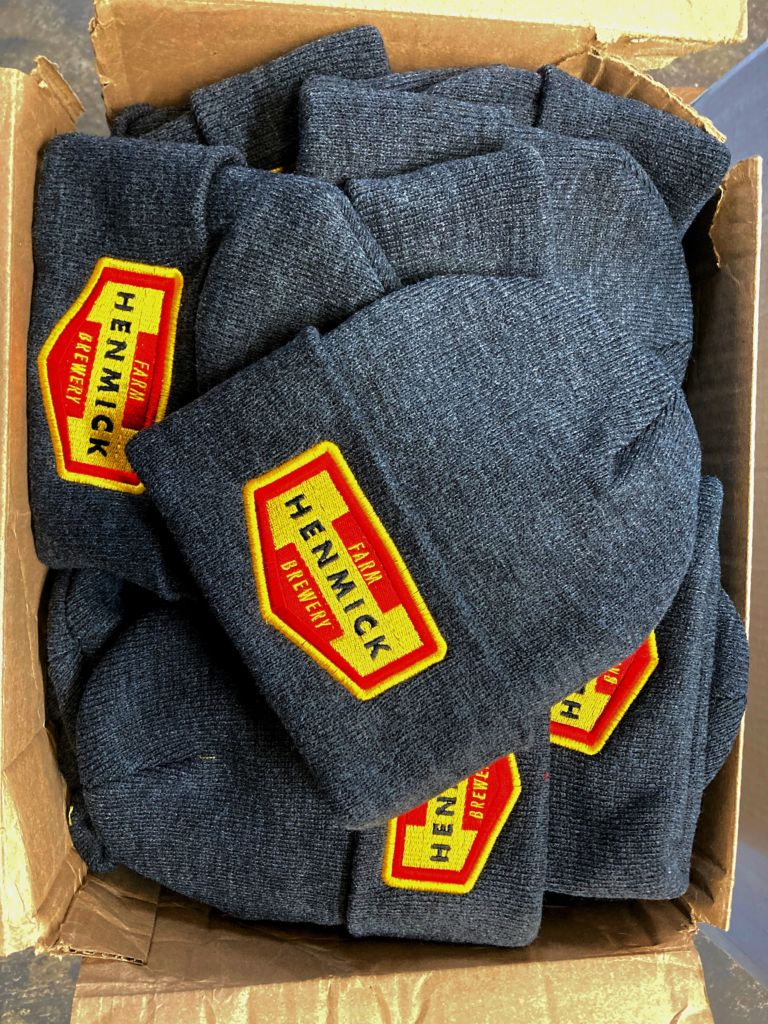
Every business owner has a flaw. What’s yours?
I am very passionate. If I commit to it, I will go to endless levels to attain it. Learning to set limitations and boundaries on my time and energy has been a hard lesson for me to learn. As the years go by, I’ve gotten better at it, but it’s still a work in progress.
Why do you think most business owners fail? What makes you different?
I was able to learn the business side of the industry previous to starting my own. I knew how to use and understand tax, profit margin, net profit, and how to read a profit and loss statement. This was massive because not only was I good at the physical skills needed but the learning curve on the business end wasn’t as great.
How did you acquire these business skills?
The company I managed prior to starting my own was, for better and worse, very hands-off from the top-level management. As a result, I was thrust into a position where I had to take on much more than I should have, but in turn, it gave me all the skills I needed to run almost every aspect of my own business. And I got to make a lot of my rookie mistakes on their dime.
It was an odd situation and very much sink-or-swim, but because I needed a job and I had a dogged personality of not wanting to fail, it made me level up and learn a lot that I never would’ve thought I was capable of.
What was your biggest mistake and what did it cost you?
Trying to fit someone into a role they weren’t ready for and didn’t necessarily want for themselves. I should have paid greater attention to previous history combined with physical actions and placed significantly less weight on verbal commitments. I should have let them determine their path and given rewards based upon output, not my desire of what I wanted them to become. It cost a lot of time and stress and was not financially efficient just to get to a fairly simple endpoint.
What tool has helped you the most for your business?
Google Apps have been game-changers for us. The ability to customize and do almost anything makes it possible for us to create automatic steps in our processes while being budget-friendly for a small business.
When did you know it was time to expand your business, make your first hire, etc.?
I knew I needed to expand when we had so much work that I was consistently missing out on opportunities. Unable to attend meetings, events, appointments that would make a big difference for us, not having the time to fit them in because I was too busy working in my business.
What is something that you did that was a game-changer for your business?
Spent time/money on the right organizations that had similar values and beliefs as us. It’s always rewarding regardless of any other outcome.
How do you find organizations with similar values and beliefs?
It’s the Law of Attraction at its best – we find that just by putting ourselves out there, those who we align with will be attracted and those who aren’t generally go elsewhere. Making sure our quality is consistently high and that we showcase the type of work we want is the main way we attract new clients.
What was an idea that you spent a lot of time on or thought would make a big difference in your business that didn’t pan out?
I’ve had a few. The first one was print-on-demand. I thought that would be a huge hit and be the backbone of our company. It turned out I totally miscalculated that one and the brands that we did work for did not have the volume or consistency needed to make it profitable in any way. It got quickly squashed after finally getting launched.
What is something your business spends a lot of money on that’s worth it?
Easily, education. We spend a lot of money on courses, educational subscriptions, events, books, audiobooks, etc. Anything that can help a person grow even if it isn’t directly related to our business is an investment that always returns many times over.
Any specific educational resources you’d like to share that would be helpful to entrepreneurs?
If you’re starting out, almost any book by Mike Michalowicz, specifically The Toilet Paper Entrepreneur and Profit First. You also can’t go wrong with classics such as How to Win Friends and Influence People (Carnegie), The E-Myth (Gerber), and This is Marketing (Godin).
What is something you’re working on now that you’re very excited about?
We have a lot of physical equipment upgrades scheduled for the upcoming year. They will improve our efficiency and make it easier to maintain our stellar quality.
What form of marketing is the most valuable for you?
Honest answer, we don’t really market. We don’t try to be everything to everyone, we want to be the perfect fit for a select few. Because of that, it truly is just a matter of seeking out and building a relationship with those that we are the perfect fit for.
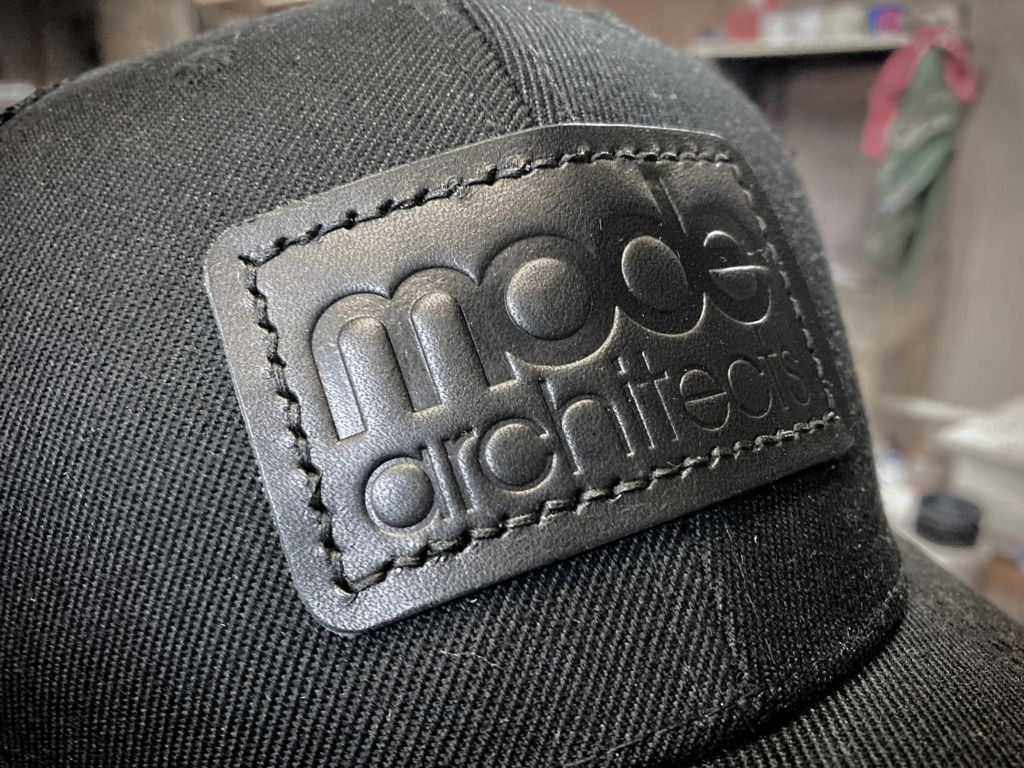
Who is your best Columbus resource?
Pat Tuure, Out There Web Design
John Youngs, Youngs Tax
Who do you vent to when you have a business problem?
Overall, my best friend Ryan gets the brunt of it. He’s a high achiever that can handle extreme honesty and bluntness.
Where do you see your business in the next 10 years?
There’s a certain level of growth that I’d like to see us hit in our first physical location that we may potentially spin into a second location. I have no desire to be the biggest or highest volume shop, but rather a small business integral to the local community that the physical shop is in. If the demand is there I could see us launching more small shops.
What was the single worst decision you made regarding your business and how’d you recover?
I don’t know of any single decision but by far a big flaw of mine has been not dreaming big enough. I need to constantly work to dream big and influence big and have the confidence to go forth with it, especially in areas outside of just our industry.
When you’re stressed or overwhelmed, what do you do to overcome this feeling?
This is something I learned from the book Extreme Ownership when dealing with complex and overwhelming situations:
Take a step back, emotionally detach yourself, assess the situation, determine what is the highest priority, and execute each task one at a time in order of priority. This is an easy way to simplify a complex project.
What’s one component of entrepreneurship that’s much different than what most people think?
The freedom is there, but you need massive amounts of discipline. Discipline to accomplish what you set out to do in a timely, efficient, and profitable manner despite the fact that you are your own boss and make your own schedule.
Leadership is the other area – successful leadership means your team/organization is winning. It doesn’t matter how individually successful you are if your team isn’t winning, then you are failing as a leader.
How do you assess when your team is winning? What does this look like?
In simple terms, the team is winning when we are making constant daily progress. There are simple metrics we can track such as sales goals, production quality, scrap rates, on-time tracking, etc.
But we also track and talk about personal goals that each person sets for themselves and declares at specific meeting times that we follow up on with a progress report at the next meeting. It helps keep everyone accountable if we all know each other’s goals, and we can also know how to help one another throughout that time period if we see that person struggling.
What’s your end goal with the business? Is this something you want to pass down to your kids or would you like to eventually sell?
If I have someone internally that is passionate about this industry, I would love to teach them and turn the keys over as I age and step away. If not, we would most likely look at selling.
I try not to find my personal identity in my business. Because of that, I don’t think that this business must go on forever even though certainly I would love for it to outlast me.
What other entrepreneur do you look up to most?
I don’t have a particular one and it has changed over the years. Some direct entrepreneurs I’ve met and been inspired by facets of what they do include: Mark Coudray, Rick Roth, Ryan Moor, Pierre Jamnicky, Mike Leibrand, Greg Kitson, John Kupka, and countless others who I’ve read and listened to their work.
If you had to tell a visitor one thing to do/see/eat in Columbus, what would it be?
Take in an afternoon game at Huntington Park, that stadium is a splendor for the baseball enthusiast. It easily has big-league quality amenities in a smaller minor league venue but often gets overlooked because there are so many high-quality sports options in Columbus.

